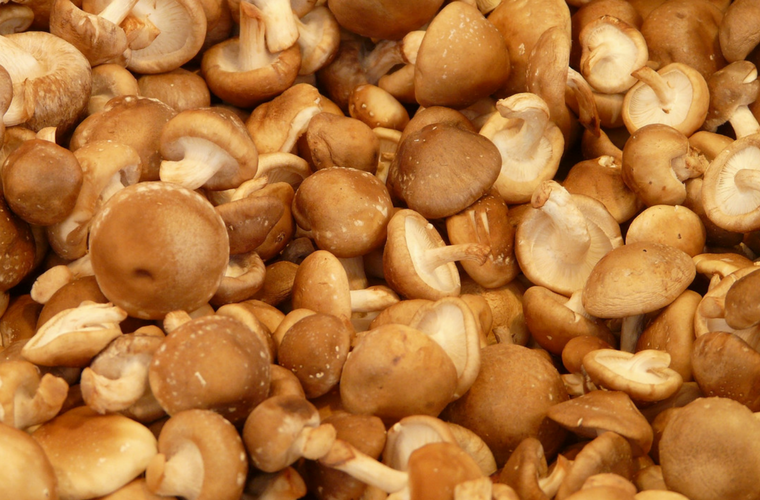Image by Pixabay/Hans
You’re a smart person who knows how to take good care of your body.
You appreciate herbs and spices and cook nutritious food to support your body. At the very least, you know where to purchase good food.
You consider yourself pretty open-minded, but if you live in the United States, there is a high probability that you’re a mycophobe.
That means you aren’t very fond of mushrooms.
A couple of weeks ago I shared with my Wellness Insiders a fabulous TED talk by Paul Stamets about the benefits of medicinal mushrooms. I promised to speak more about this subject. (If you’d like to get special ‘love notes’ from me, become a Wellness Insider – I share great resources in them.)
There are many places around the world where mushrooms are revered and loved.
Did you know that Reishi mushroom was called “the mushroom of immortality?”
Our ancestors believed this mushroom could prolong life. As a result, consumption was strictly forbidden by pretty much anyone outside of the royal family.
I was born in Eastern Europe, a lot of my friends and family members are mushroom lovers.
Ever since I was a kid my mom would cook a huge beef chanterelle stew for my dad’s birthday in late August. The smell and apricot-like taste of chanterelles were such a gift. To this day eating chanterelles brings back some wonderful childhood memories for me.
Only when I began studying herbs, I realized how amazing mushrooms truly are.
A great source of protein and beta-glucans, mushrooms are a powerhouse of health-producing compounds that you really want to capitalize upon.
In my first herbal program, mushrooms absolutely terrified one of my girlfriends. In reality, I couldn’t really blame her.
There are very few poisonous mushrooms out there (only about 50 species out of several thousand of edible varieties).
If you are unlucky enough to eat one, you can get extremely sick. Plants very rarely kill, but poisonous mushrooms can.
If you are interested in gathering your own, my best advice is to get a good mushroom identification book and start by learning in-person from other experienced mushroom hunters.
Your other option is to buy or grow your own mushrooms. You can purchase many different mushrooms at the farmers’ market or even your grocery store.
In addition to their diverse and delicious flavors and textures, mushrooms fit well in your diet because of their health-promoting effects.
Please keep in mind, your typical portabella mushroom is the ‘iceberg lettuce’ of the mushrooms. It’s widely available in the supermarkets, but definitely least nutritious of them.
Let’s start with three edible mushrooms you should check out.
1. Shiitake – Lentinula edodes
This mushroom goes by the name ‘forrest mushroom’, Shang Gu, and many other. You can purchase it in many places, and easily incorporate into your cooking. I love shiitake in my eggs, stews, soups. There are ways of growing your own with special mushroom kits. This would be a great project for children in your family.The research on shiitake and its isolated ingredients shows beneficial effects on cancer, hepatitis B and liver protection, HIV/AIDS, tooth decay, and digestive system (specifically, the beneficial bacteria).
2. Maitake – Grifola frondosa
‘Hen of the woods’, or ‘Sheep’s Head’ are some of the other names for Maitake. It’s a delicious and very large mushroom – it grows in a ball or head.
Similarly to Shiitake, Maitake and its isolated ingredients have a pretty respectable amount of scientific research. It was studied in a variety of conditions from diabetes, cholesterol, HIV/AIDS, immunomodulation, blood pressure, obesity, prostate and bladder cancer, to chemotherapy adjuvant.
3. Lion’s mane – Hericium erinaceus
This exotic mushroom goes by many names including Monkey’s Head, White Beard, Pom Pom. My mushroom farmer claims you can make Lion’s Mane taste like gummy bears. I love using it in my stews. The scientific evidence associated with Lion’s Mane might intrigue you. Researchers looked at the benefits of this mushroom in Alzheimer’s disease and memory loss, treatment of high cholesterol and diabetes, immune system support and suppression of sarcoma tumors.
There are a couple of my favorite mushroom books: Medicinal mushrooms: An exploration of Tradition, Healing & Culture by Christopher Hobbs, and MycoMedicinals: An Informational Treatise on Mushrooms by Paul Stamets.
If you’d like to explore some mushroom companies, start with Paul Stamets’ Fungi Perfecti. The company’s research and efforts to educate about the benefits of mushrooms are pretty impressive.
Questions: Have I persuaded you to give mushrooms a try? If you love mushrooms already, what are your favorite uses, dishes, products?



2 Comments
Minh
October 25, 2016 - 12:19 pmSo have you run into any studies that say that dried mushroom are more effective than fresh? The Chinese usually favor dried mushrooms over fresh.
Lana Camiel
October 27, 2016 - 2:10 amThank you, Minh, for your question. It is typically difficult to have access to fresh mushrooms, that’s why most people are more accustomed to dried. The flavor is also typically stronger with dried mushrooms. Not certain if there is a comparison out there, but if you look at a lot of medicinal mushrooms – Chaga, Reishi, etc – they are typically cooked from dried.